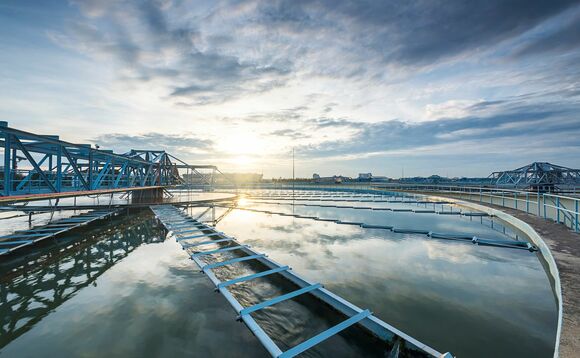The chief executive of Ofwat has written a second letter to UK water companies in five months, following reports of illegal sewage dumping in seas and rivers
Major new investigation from Ofwat and Environment Agency aims to tackle fears water companies are releasing sewage into waterways in breach of environmental permits
The water services regulation authority Ofwat has this week launched a major new investigation to try and uncover the extent to which water companies are illegally releasing sewage into waterways.
The investigation follows reports from the Environment Agency that suggest water and wastewater companies have released sewage into waterways and rivers in breach of their environmental permits. It comes amidst a growing public campaign in protest at the practice of wastewater plants releasing sewage into waterways in the wake of heavy rains, which saw the government accused of failing to adequately tackle dangerous levels of pollution.
David Black, interim chief executive of Ofwat, has now written a letter to water companies asking them to disclose the extent of any potential unpermitted sewage spills, including the number of sites affected and the number of spill incidences at these sites, and explain what caused the breaches.
The letter concerns possible non-compliance with Flow to Full Treatment (FFT) conditions, the maximum levels of wastewater a plant can treat, set out in environmental permits. A breach of FFT conditions could see companies permit sewage overflows into waterways before the maximum level of wastewater has been treated.
Black previously wrote to companies in June, urging them to respond to concerns over the frequent use of storm overflows.
"Back in the summer, I wrote to companies setting out the need to improve performance on the use of storm overflows," he said. "I haven't seen enough to suggest that message was heard or heeded, and this new information suggests there may have been very serious failings by water companies in treating wastewater.
"We will find out what company Boards knew and when, and if there has been management failure or misreporting of data to us and to the public. If we find there has been, we will use all of our powers to hold companies to account."
In the new letter, Ofwat asks companies to explain how they monitor compliance with their environmental permits, including their system of management, the role boards play in scrutinising actions and how non-compliance is identified and resolved. Ofwat also asks companies to set out plans for remedying non-compliance and any root causes identified.
As part of the investigation, the Environment Agency is reviewing potential breaches of environmental law. Over 2,000 sewage treatment works are involved in the investgation. Companies found to have breached their legal permits could face fines of up to 10 per cent of their annual turnover or prosecution.
The revelation that companies may be breaching FFT conditions comes after the Environment Agency asked companies to fit new monitors at sewage treatment works to make sure the right levels of wastewater were being treated before overflows were permitted. In response to the request, a number of water companies revealed that their sewage treatment works may not be compliant with the FFT conditions in their permits.
Emma Howard Boyd, chair of the Environment Agency, said: "Any water companies in breach of their permits are acting illegally. This is a major issue of public trust. Water company boards must certify every year that they have adequate resources to fulfil their regulated activities. Only now, just before new monitors are installed, have companies reported concerns over potential problems. The EA has begun an immediate investigation of 2,480 sewage treatment works and will prosecute where necessary."
In addition to investigating breach of permits, Ofwat has also asked Boards of water companies to explain how environmental performance and compliance with obligations has been taken into account when deciding on paying out dividends and executive bonuses.
In October, the government confirmed it would amend the Environment Bill to require water companies to reduce sewage overspills over the next five years, despite voting down a different amendment to ban water companies from pumping raw waste into rivers and seas.
Environment Minister Rebecca Pow welcomed the latest crackdown from Ofwat and the Environment Agency. "This new information is shocking and wholly unacceptable," she said. "We have been repeatedly clear in Parliament in recent weeks that we need to tighten up existing rules but also raise standards across the board when it comes to protecting our rivers."
She added that the government would also look beyond simply addressing issues of regulatory non-compliance and wanted "to see water companies spending far more on better infrastructure, and far less on payouts to shareholders".
The news of the joint investigation was welcomed by Philip Dunne, MP and chairman of the Environmental Audit Committee. "It is clear that with decades of under-investment in our sewerage network there are no quick fixes, but it is welcome that the government, through the Environment Act passed into law last week, is already taking action to get a grip on this unacceptable activity," he said. "My Committee has been examining, in depth, the current regulatory structures around permitted discharges. We will be reporting our conclusions on the adequacy of the existing system when we issue the report of our inquiry into Water Quality in Rivers."
The move comes in the wake of a record £90m fine for Southern Water this summer, which saw the company found guilty of a "shocking disregard for the environment" that resulted in nearly 7,000 illegal spills between 2010 and 2015. Environmental campaigners argue that a combination of chronic infrastructure underinvestment and escalating climate impacts mean sewage spills are still occuring far too frequently, leading to huge damage to waterways and marine ecosystems, as well as public health risks.
Responding to the news of the latest investigation, a spokesperson for trade body Water UK said: "The water industry is committed to the best possible environmental outcomes. Water companies have been investing heavily to modernise the monitoring of sewage treatment works, and in using better modelling and artificial intelligence techniques to understand and predict any issues that might occur. Where the data identifies any problems, then action must be taken to address them."








